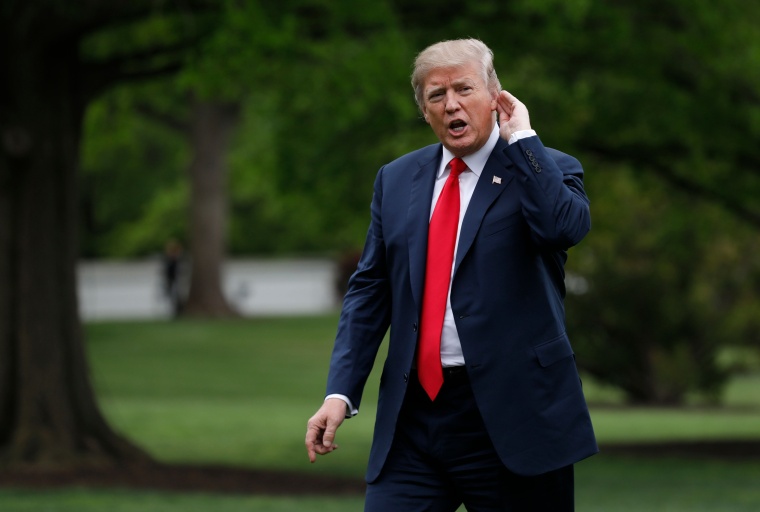Donald Trump briefly spoke to reporters before boarding Air Force One yesterday, and the president talked about traveling to Texas, where "we're going to have a little fun today."
It was an odd choice of words: Trump was scheduled to meet with family members who lost loved ones at the recent mass shooting in a Houston-area high school. "Fun" wasn't really the point.
An Associated Press report added that the president's visit could've gone better.
Rhonda Hart, whose 14-year-old daughter, Kimberly Vaughan, was killed at the school, told The Associated Press that Trump repeatedly used the word 'wacky' to describe the shooter and the trench coat he wore. She said she told Trump, "Maybe if everyone had access to mental health care, we wouldn't be in the situation."Hart, an Army veteran, said she also suggested employing veterans as sentinels in schools. She said Trump responded, "And arm them?" She replied, "No," but said Trump "kept mentioning" arming classroom teachers. "It was like talking to a toddler," Hart said.
It's unfortunate, of course, that the president struggled to console a grieving mother during an incredibly difficult time, but if her reaction to meeting Trump sounds familiar, it's because we've seen quite a few reports like these.
After the mass shooting in Parkland, Fla., for example, Trump called Samantha Fuentes, a student who'd been shot and was left with a piece of shrapnel lodged behind her right eye. "Talking to the president, I've never been so unimpressed by a person in my life," she said after the conversation. "He didn't make me feel better in the slightest."
Around the same time, Trump hosted an event at the White House on school shootings, where he clutched talking points that had apparently been written for him. One of them read, "I hear you" -- suggesting he needed to be reminded of this.
Before that, Trump reached out to Sgt. La David T. Johnson's widow, Myeshia Johnson, after he was killed in Niger. When their conversation didn't go well, the president ended up feuding with Ms. Johnson via Twitter.
In the fall, shortly after the massacre in Las Vegas, the Associated Press reported that White House aides felt anxiety over what Trump might say (or tweet) about the mass murders. They were nervous, of course, because of the president's "troubled track record in such delicate moments."
After Hurricane Harvey hit Texas, he marveled at the size of the "turnout" of people who wanted to see him in Corpus Christi. After initially ignoring Puerto Rico following Hurricane Maria, the president focused on the island's debts to Wall Street, feuded with a local mayor, and threw paper towels to locals as if he were shooting free throws.
I'm sure there are examples of Trump comforting people in need during difficult times, but it's nevertheless difficult to look past the pattern in which the president's empathy gap has been on display. He routinely struggles in a wide variety of ways, but it often appears that asking Trump to play the role of Consoler in Chief is unrealistic. This doesn't seem to be part of his skill-set.
As a candidate, the future president, referring to himself in third person, said empathy would be "one of the strongest things about Trump."
There's quite a bit of evidence to the contrary.
